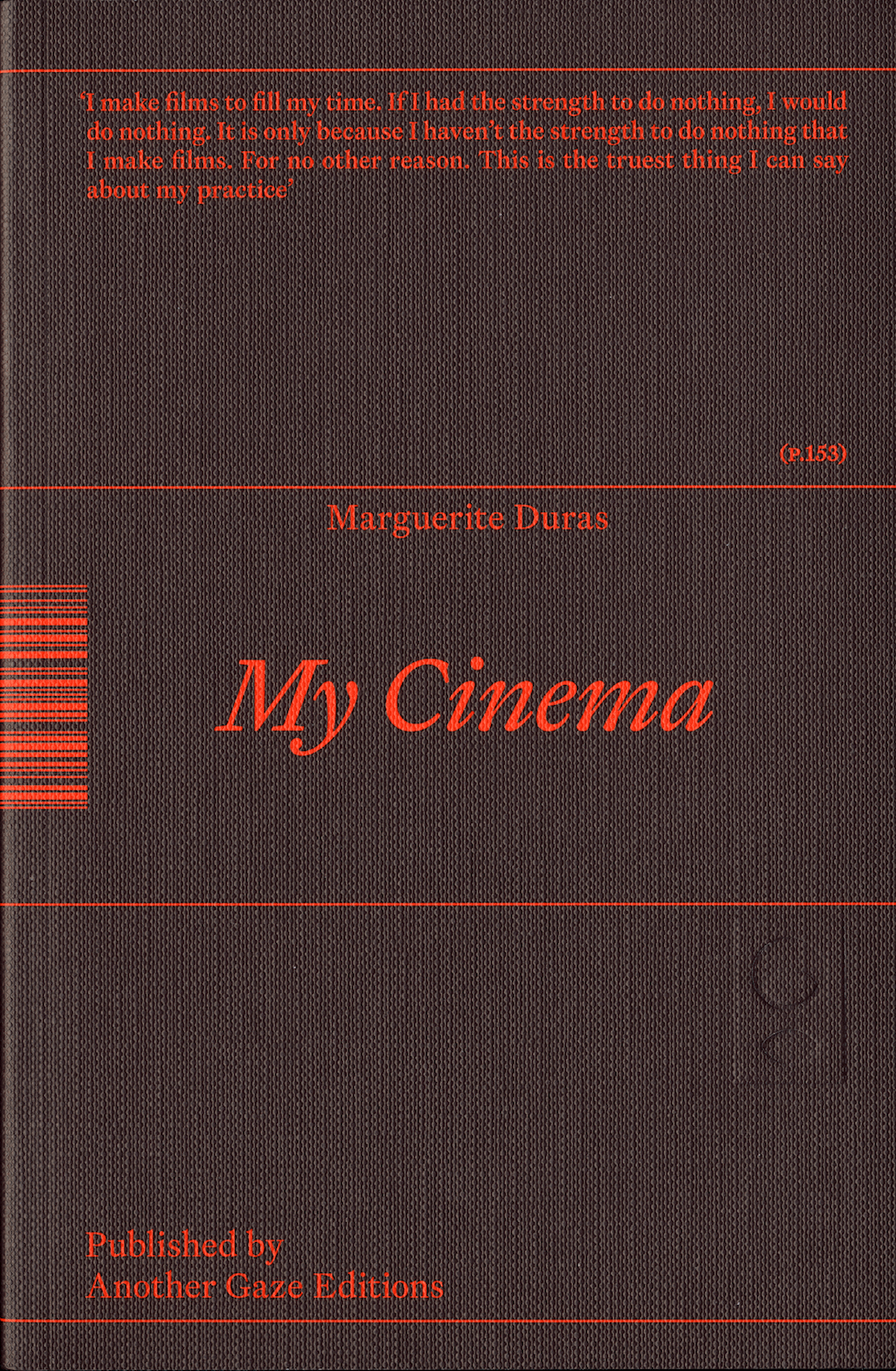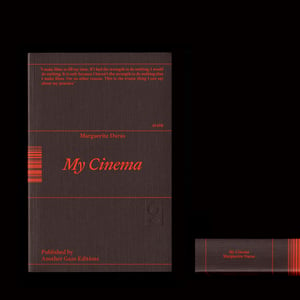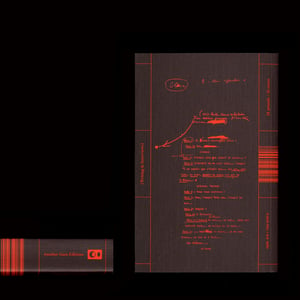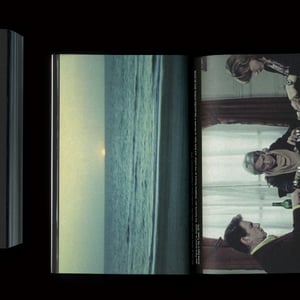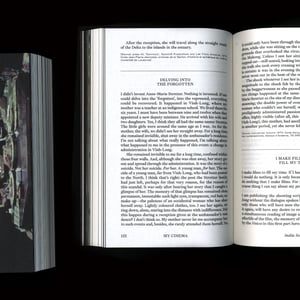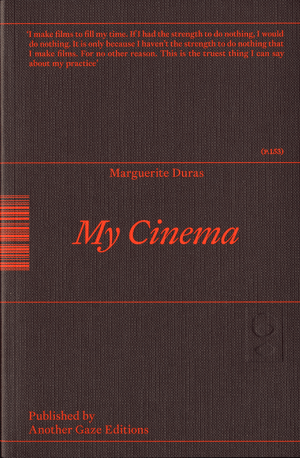My Cinema by Marguerite Duras
£16.00
From 'Le cinéma que je fais', P.O.L (2021), edited by François Bovier and Serge Margel
Translated by Daniella Shreir
With a foreword by Alice Blackhurst
‘To still be able to hear Marguerite Duras’s voice as she speaks and writes about her filmmaking practice is a gift’ — Bette Gordon, filmmaker
‘Both ahead of her time and nostalgically mired in the past, in My Cinema, Duras deconstructs her own methods, going gleefully against the grain in order to “destroy” conventional cinema. A beautifully translated collection of writing by an often maddening genius’ — Lizzie Borden, filmmaker
❁
'I make films to fill my time. If I had the strength to do nothing, I would do nothing. It is only because I haven’t the strength to do nothing that I make films. For no other reason. This is the truest thing I can say about my practice.'
❁
J.D. – What do you say to people who tell you that your films aren't cinema?
M.D. – Cinema is being trapped in the dark with an image. Nothing more. No matter what the image. A car going at 100 miles an hour or a face saying "no". A concert that has been filmed is also cinema; there is music and then there’s an image. The rest is nonsense. There is no theory that can support it.
❁
Working chronologically through her nineteen films, made between 1966 and 1985, this collection of reflections by Marguerite Duras (1914–1996) includes non-standard press releases, notes to her actors, letters to funders, short essays on themes as provocatively capacious as ‘mothers’ and ‘witches’, as well as some of the most significant interviews she gave about her cinematic and writing practices (with filmmakers and critics including Jacques Rivette, Caroline Champetier and Jean Narboni).
In Duras's hands, all of these forms turn into a strange, gnomic literature in which the boundary between word and image becomes increasingly blurred and the paradox of creating a cinema that seeks ‘to destroy the cinema’ finds its most potent expression.
Yet, Duras is never concerned only with her own work, or even with the broader project of making cinema: her preoccupations are global, and the global crucially informs her perceptions of the way in which she works. With the audiovisual as a starting point, her encyclopaedic associative powers bring readers into contact with subjects as diverse as the French Communist Party, hippies, Jews, revolutionary love, madness and freedom, across four decades of an oeuvre that is always in simultaneous dialogue with the contemporary moment and world history.
*
Please note that due to postage and packaging prices, deliveries are not tracked. If you would like to arrange this, please email [email protected].
